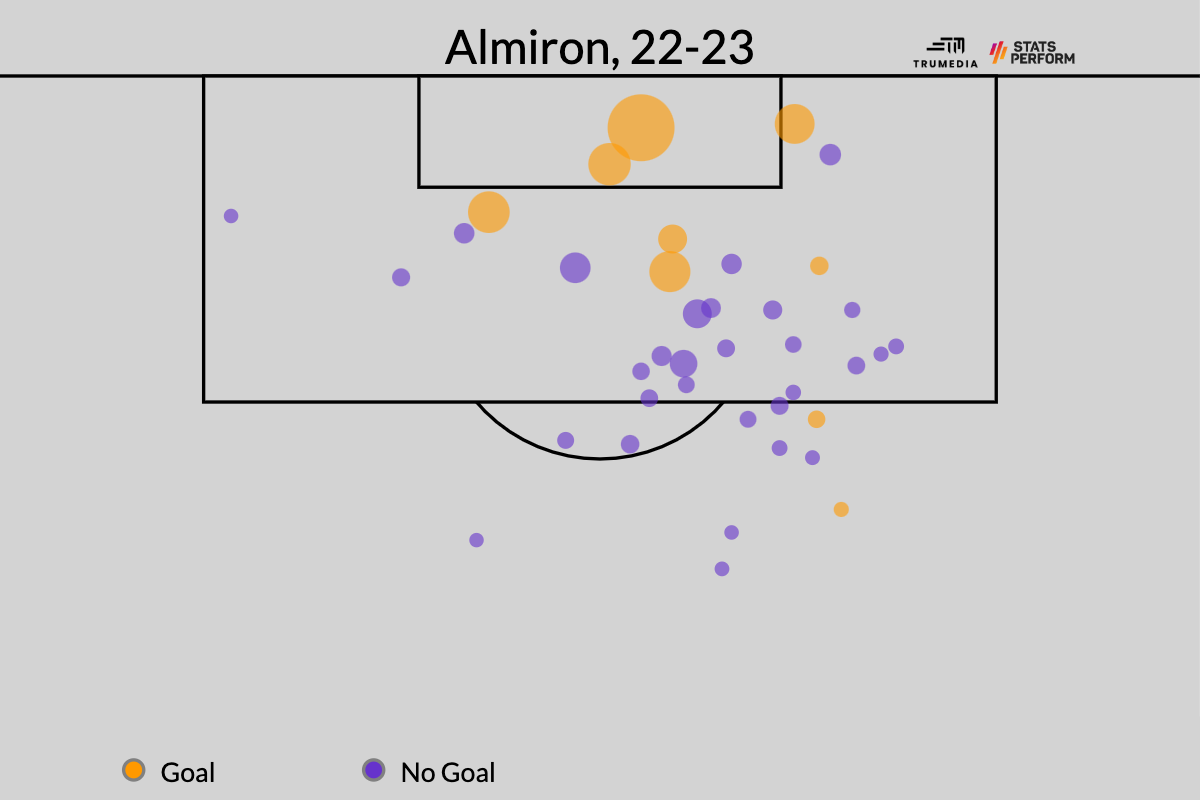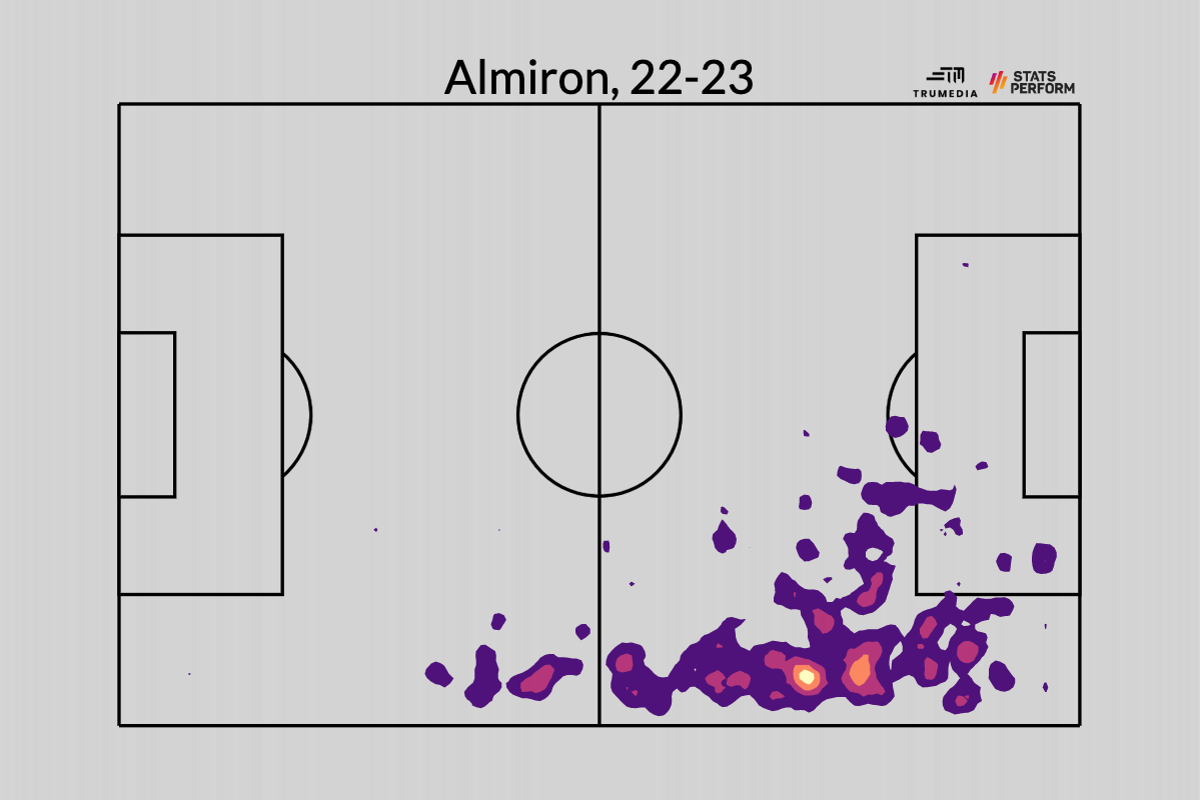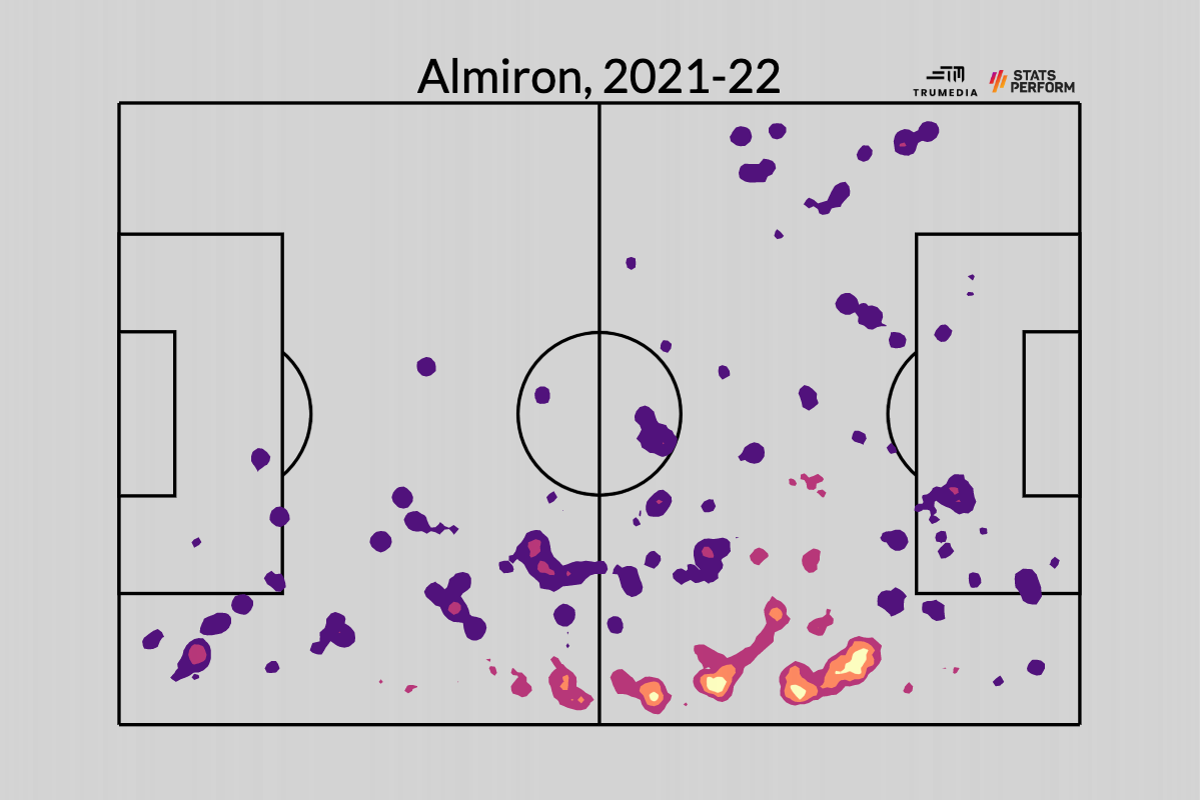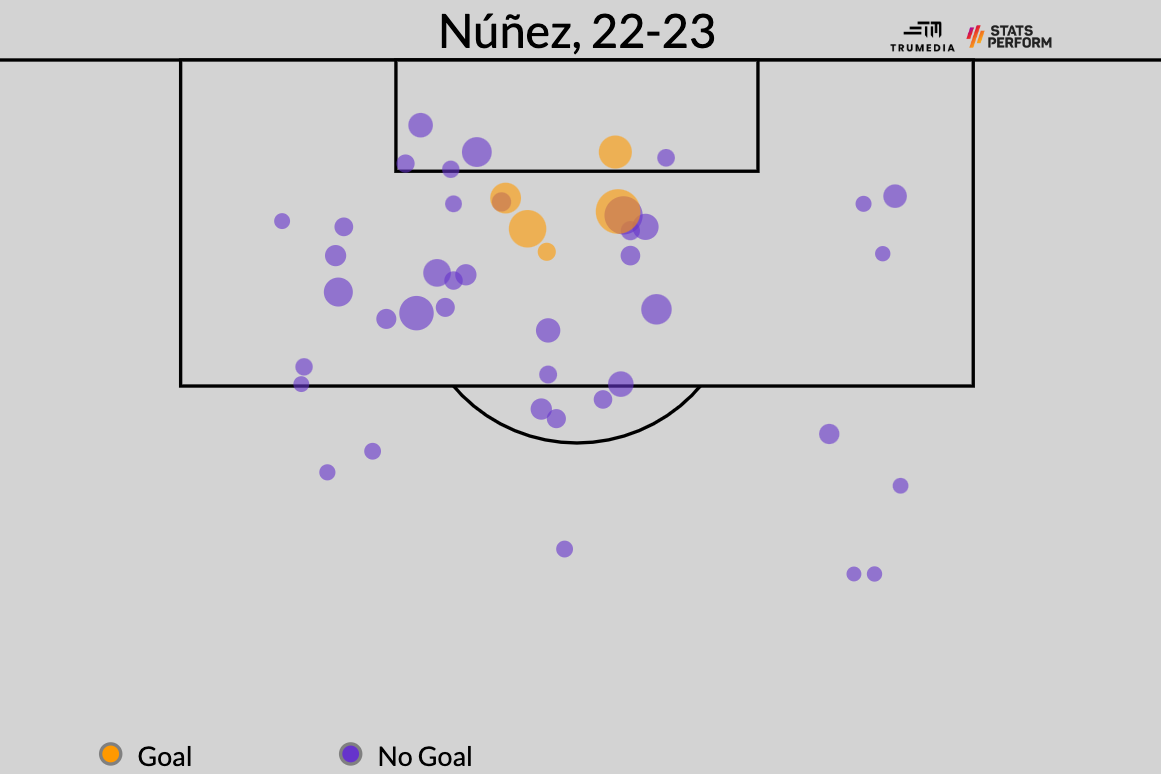It's been a while, but we're back with another mailbag to wrap up 2022.
Want to feature in a future edition? Tweet at me (@rwohan) while that remains a possibility, or send an email over to ohanlonmailbag@gmail.com. As long as it's at least tangentially soccer related, it's fair game. Hell, the more tenuous the connection, the more likely I am to actually answer the question.
Hope you're all safe, well and enjoying the holidays. Let's get to it.
Hey Ryan, I got a book for Christmas called "Net Gains," about the analytics revolution in soccer. Have you read it? Seems right up your alley!
-James
Never heard of it! Sounds fantastic, though. Wow, the author is really handsome, too. Looks like you can pick up a copy here ...
Big fan of the book, I'm on chapter 8 right now. As I'm reading the book, it has me thinking: if you could adopt a style of play and sign any active player in the world to play it -- what would your starting XI look like? P.S. There are no limits to who you could sign but the team needs to be cohesive and the players have to play in their natural position. No Paris Saint-Germain front lines and no Mohamed Salah at striker!
-Ahmed
I've mentioned this quote from manager Rafa Benitez before, and I'm mentioning it again because I think it sums up the push-and-pull of tactics/strategy more succinctly than anything else I've heard. Benitez likens it all to a "short blanket ... if you cover your head, you have your feet cold, but if you cover your feet, you have your head cold". Good managers know where to put the blanket. Great managers know how to stretch it out -- and great players let you do the same.
In terms of how this team would play, I think it falls somewhere in between what Manchester City and Liverpool did last year. There's some evidence that a really aggressive press can take you from bad to average or average to good but also that there are diminishing returns as you get toward the absolute top of the table. The best teams in Europe do press at a much higher rate than average, but they're also rarely the heaviest-pressing teams on the continent. Everything in moderation.
Liverpool led the Premier League in pressing last season (as measured by PPDA, or "passes allowed per defensive action"), while City maintained 77% of final-third possession and took 1,000-plus more touches in the opposition penalty area than they conceded. As we're seeing this season, the City approach was much more sustainable, but I think there's an argument that Liverpool's more aggressive style offered a higher ceiling. In terms of pure cohesion, these were the two best teams of the past decade, so we'll be trying to build a side that can adopt both of their methods.
In goal, it's an easy choice. Alisson is perhaps the best shot stopper in the world. He's fantastic with his feet, great off his line, good with crosses and unmatched on one-on-ones. He's simply great at all aspects of playing the position (other than, maybe, stopping penalties), so this is a no-brainer.
At full-back, we're going with Reece James on the right and Andy Robertson on the left. The latter just set the record for Premier League assists by a defender ... and he's 28 years old. Robertson is the A-plus model of a traditional full-back: he gets up and down the flank as well as anyone in England ever has. The way he plays doesn't require any sacrifices or rebalancing elsewhere in the lineup -- and same goes for James. He's not that far off from the defender Kyle Walker is -- in terms of pure one-on-one defending and in transitional recovery ability -- and he's ranked in the 97th percentile among all full-backs for expected assists per 90 minutes.
Between those two, we'll go with Virgil van Dijk at left center-back. He hasn't been at the same level this season, but at his best, he stretched the blanket further out than maybe anyone else in the world: great in transition, great in the air, great defending deep, great with the ball at his feet -- and great on set pieces. Next to Van Dijk, let's go with Antonio Rudiger. A guy who rarely plays in a back four and still doesn't consistently start at Real Madrid? The ideal partner for Van Dijk is the inverse of Van Dijk -- a guy who's loud, obvious, aggressive and constantly trying to make plays with and without the ball. In other words: Rudiger.
Then, in the midfield, we'll play with three. From a pure numbers perspective, a 4-3-3 just seems to have a higher ceiling than any other formation simply because your two advanced midfielders and full-backs can both easily push up, while no other arrangement of players easily allows for you to attack with that many numbers. Given our talent, we want to attack with as many numbers as possible. At the base of midfield, we're going with Marco Verratti. He never loses the ball, and he frequently plays it forward and frequently wins back possession; we're stretching out that blanket once again. In front of Verratti, though, I think we want to add a bit of size and physicality, so we're going with Kevin De Bruyne and Jude Bellingham. There's maybe some overlap in how they both like to drive forward, but De Bruyne might be the best passer of the ball on the planet and Bellingham might already be the best off-ball midfielder in the world with his ability to break into the box.
In the front three, we're playing Vinicius Junior on the left. He's one of the few attackers you could legitimately consider as world-class offensively and defensively. We need at least one forward who's going to work hard off the ball. Up top, we're going with Erling Haaland. He has won six tackles ... since joining Borussia Dortmund in January 2020. But the guy has now flourished across numerous attacking styles -- remember when we were worried he could only score in transition? -- and with all the talent elsewhere in the team, we don't need him to touch the ball other than when he's kicking it into the goal. His off-ball threat should provide space for everyone else.
And so, we'll end with a little-known player I've always thought was underappreciated by the larger public: Lionel Messi. He'll be playing on the right, technically, but he'll pinch in heavily, create space for Bellingham and James to run into, and re-create that Jordi Alba connection with Robertson's unceasing running from the left. I also think Rudiger and Bellingham and James can cover for the fact that Messi -- at this point in his career -- almost literally just stares at the ball as soon as it gets turned over.
My concerns with this team are the lack of pressing from the front, but I could not -- with a straight face -- convince myself that Gabriel Jesus or Diogo Jota would've been better options than Haaland and Messi. The midfield might be too lightweight defensively, and Messi and De Bruyne, theoretically, both like to occupy the same spaces in the attacking third, but I think that's probably the lesson of this exercise. Even when you have unlimited resources, for some players their intrinsic abilities are still more important than how well they fit into the system. Talent trumps tactics.
Why is Miguel Almiron so good now? Is it a ridiculously hot finishing streak? Or (as the eye test suggests) is he simply better now? And if so, how?
-Alex
To start: yes, it is a ridiculously hot finishing streak. For his Newcastle United career, Almiron has 18 goals from 19 expected goals. But for this season in particular, the discrepancy has flipped significantly: nine goals on just 5.1 expected goals (xG). Through the Boxing Day matches, Almiron is exceeding his xG total by more than all but two other players in the league: Haaland and James Maddison. Almiron didn't just suddenly become a world-class finisher at age 28, so the most likely outcome for the rest of the season is that his goal scoring will suddenly cool off and land somewhere near his xG. Shots are sized by their xG values:

However! Almiron's xG per 90 minutes rate is nearly triple his number from the past two seasons: 0.34, up from 0.13. He's taking an extra shot per 90 compared with last season (from 1.7 to 2.6) and the quality of those shots has improved significantly (0.13 xG per shot, up from 0.08). And I think those two improvements carry over to almost every aspect of his game; he's simply more involved in the more dangerous areas of the field.

Meanwhile, last season his involvement was scattered across the field, in every direction.

Under previous managers Rafa Benitez and Steve Bruce, Newcastle were a super-defensive team in different kinds of ways. With Eddie Howe as manager this season, they're not a dominant possession team but are averaging just over 50% of the ball, up from 40% last year and 39% the year before. At the same time, they're still moving the ball up the field faster than all but three other teams in the league. Rather than conceding possession, defending deep and having to counter across 80 or 90 yards to score a goal a few times per match, as they had been, Newcastle are now winning the ball higher up the field, and winning it more often, so Almiron is getting more high-quality opportunities to break directly in on goal.
Once the goal scoring starts to dry up, he'll be somewhere around a league-average attacker. That might not sound exciting, but it's something Newcastle have rarely had -- and something Almiron previously never was.
How elite is Darwin Núñez's movement? He's always able to receive the ball to create incredible chances (not finishing them is something else entirely).
-pak
"Guy gets a ton of chances over a short stretch, misses a lot of chances over a short stretch, everyone thinks he's terrible -- only for guy to suddenly score a ton of goals" is a tale as old as time. Finishing is fickle, prone to massive swings in variance; the best strikers score the most goals not because they're particularly good at kicking the ball but because they're particularly good at frequently getting into the best positions to then kick the ball. And through Monday's matches, Núñez has been better at that than any other player in the Premier League. He leads the league in non-penalty xG per 90 minutes with 0.76.

If he keeps playing, Núñez is going to start scoring a ton of goals. I feel pretty confident in that prediction. In fact, he has a lot in common with another Uruguayan striker who used to play for Liverpool:
There was a season where Luis Suarez was constantly offside, every game.
— Ted Knutson (@mixedknuts) December 26, 2022
And then the one time he wasn't, it was a goal.
And the next season it was occasional, and way more goals.
Feels like Nunez is just a whisker off that right now.
However, I do think there's an interesting question about how his presence in the lineup destabilizes an already-unstable team. Against West Ham United, he attempted six shots ... and completed four out of 11 passes. Since 2008, six or more shots and four or fewer completed passes has happened only five other times in the Premier League:
Emmanuel Adebayor for Arsenal against West Ham on Oct. 26, 2008
Mario Balotelli for Manchester City against QPR on May 13, 2012
Mario Balotelli for Liverpool against Manchester United on Dec. 14, 2014
Jamie Vardy for Leicester City against Southampton on Jan. 11, 2021
Diego Costa for Wolverhampton Wanderers against Leicester on Oct. 23, 2022
Adebayor did his in just 22 minutes of game time, while Balotelli's first came in 14 minutes and his second came in 45. Vardy and Costa -- two once-great strikers at the tail end of their careers -- were the only other two who stretched out the discrepancy for 80 minutes or more. I miss Balotelli so much.
Anyway, Núñez is completing just below 14 passes per game this season, while last year, Diogo Jota was last on the team with more than 21 passes per game. While Núñez is constantly stressing the opposition backline and gives Liverpool an easy path forward to relieve pressure, he doesn't help them control games -- at all.
On Monday, they outplayed Aston Villa on the whole, but there were long stretches of chaos and deep defending -- which is sort of the story of their season. Part of that is due to what seems like a decline across the entire midfield, but I also wonder how much of it is due to Núñez's inability to contribute much in settled possession. And, well, with the pending arrival of Cody Gakpo, who's in the 7th percentile for percentage of passes completed at his position, I wonder if it's all part of the plan.
If you were in charge of fantasy soccer, how would you do the scoring?
-A
Despite being a so-called "stats nerd," I've never really enjoyed fantasy soccer. It's not like fantasy football is a one-to-one representation of what matters on a football field -- see: how important running backs are, the defensive scoring system, etc. -- but I can watch an NFL game and understand who is producing fantasy football points. With soccer, I have no clue. The stats, to me, almost seem to actively attempt to divorce the game from reality. Throw in all the strange boosts and captain options and the fact that everyone can have the same players and it's just not for me.
If you wanna have fun watching soccer while rooting for specific players not on your favorite team, just do a goals pool. You draft a lineup of players; you add up their goals; and whoever has the most goals at the end of the season wins. That's ... it. You can create whatever draft restrictions you like; you can do it across leagues; and if you wanna add in assists, I'll accept that, too. The beauty is in the simplicity, though. It's so much easier to track and to understand. That makes it way more fun -- and way closer to reality, too.
